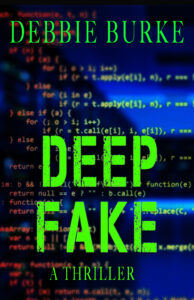
Public Domain -Giulio Bonasone
By Debbie Burke
Recently Garry wrote about an artificial intelligence (AI) tool called ChatGPT. He freely admitted he didn’t actually write it. He provided a prompt and a bot filled in the rest.
Since its release in November 2022, ChatGPT has generated lots of discussion in writing communities. Will writers, voice artists, and other creatives become obsolete? Will we turn into variations of fast-food order takers who check appropriate boxes on the screen?
Want fries with that? Check this box.
No pickles? Check this box.
Extra-large soda, no ice? Check these two boxes.
A 90K-word sci-fi saga of space travel by sentient iguanas? Check this box.
The more detail you provide, the more AI learns to deliver specific, targeted responses.
Say you want a 20K-word romance novella, with explicit sex but no violence, about love between two iguanas, separated by a flash flood in the Alpha Centauri desert with an HFN (happy for now) ending. Check these boxes.
Here’s a recent example of repercussions of AI.
Even though the submission guidelines for ClarkesWorldMagazine specify no content written, co-written, or assisted by AI, the sudden flood of AI-created stories hit them hard. See the chart below that Clarkesworld posted on Twitter:
As a result, they closed submissions.
ClarkesWorld stated:
Just to be clear, this is NOT the number of submissions we receive by month. This is the number of people we’ve had to ban by month. Prior to late 2022, that was mostly plagiarism. Now it’s machine-generated submissions.
There are few enough outlets for stories now. How many other publications will have to close submissions because of bot overload?
Let’s extrapolate about other potential developments.
What if you submit manuscripts written by AI to agents who are already buried in submissions? The slush pile will soon be higher than Kilimanjaro.
Will agents respond with rejections written by ChatGPT? Or will they simply refuse to accept submissions except for carefully screened personal referrals?
Just for fun, check out this rejection letter to an employment application.
How about people who say, “I’ve always wanted to write a book”? Seems likely they’ll figure ChatGPT makes that as easy as ordering a double cheeseburger, no pickles, an extra-large drink, no ice.
That trend has already started. As of February 23, 2023, Business Insider reported Amazon offers 200 self-published books where ChatGPT is listed as the coauthor.
There’s no way to accurately track the numbers of such books because Amazon doesn’t specifically prohibit books created with AI. There is no necessity for “authors” to reveal its use.
Discoverability is already daunting for authors when competing for reader attention against an estimated four million new books each year.
Will we who toil the old-fashioned way—using our imaginations and spending years with our butts in the chair—be redefined as “legacy authors”? Do we become quaint, obsolete oddities–verbal buggy whip makers?
How about nonfiction writing? When I Googled “research paper written by ai”, these ads came up:
GoCopy: AI Writing Assistant – Write your article in 1 click
Our writing assistant instantly generates unique text perfect for websites and online ads. oCopy’s AI-powered software creates original and high-quality content instantly.
Sign Up For Free Today · View Pricing · Case Studies · Check Testimonials · Read FAQs
AI articles on any topic – Backed by 10 years AI research
Ad·https://www.articleforge.com/
We are the only tool that can research, plan & write long form blog content automatically. Don’t believe us? See it yourself. Start your 5 day trial. 30 day money back guarantee.
How It Works · Case Studies · Pricing Information · Foreign Language · Use Cases · Sign Up
Ai Article – AI-Powered Article Writer
Ad·https://www.simplified.com/ai-article
Instantly Create Engaging and Quality Articles & Blog Posts. 100% Unique & Plagiarism-Free. 1 Million+ Users. No Credit Card Required. AI Article Writing At…
AI Blog Writer · Blog Section Generator · Blog Introduction Writer · Blog Conclusion Writer
~~~
Starting in November 2022, CNET published numerous financial articles with the byline “CNET Money Staff.” Turns out those articles were written by “automation technology.” Andrew Tarantola reports in Engadget:
It is only after clicking the byline that the site reveals that “This article was generated using automation technology and thoroughly edited and fact-checked by an editor on our editorial staff.”
Well, apparently not thoroughly enough. In January 2023, Igor Bonifacic, also reporting for Engadget, follows up with further information that CNET had to correct many of its articles for problems including parts that were “lifted” from other published articles. Bonifacic makes the observation:
It’s worth noting that AI, as it exists today, can’t be guilty of plagiarism. The software doesn’t know it’s copying something in violation of an ethical rule that humans apply to themselves. If anything, the failure falls on the CNET editors who were supposed to verify the outlet’s AI tool was creating original content.
This article by Almira Osmanovic Thunström in Scientific American describes the remarkable ease of creating an academic paper with AI. Publish or perish has long ruled academia. Now a publishable article is only a few clicks away. How tempting to be seduced by this convenient short cut.
She also explores ethical and legal complexities that arise, such as attribution of sources, credit to coauthors, copyright issues, etc.
She concludes: “It all comes down to how we will value AI in the future: as a partner or as a tool.”
Her last line: “All we know is, we opened a gate. We just hope we didn’t open a Pandora’s box.”
In schools and colleges, teachers are already swamped with work from students who click a few buttons and submit an instant term paper. Many now ban the use of AI for tests and research papers, but they can’t catch all of them.
CNN, Bloomberg, Fortune, and other news outlets report ChatGPT has been able to pass the bar exam and it did well enough on business tests to theoretically earn an MBA.
While proponents describe AI as a collaborative tool used to outline, organize, and brainstorm, others caution it enables students to receive passing grades without truly learning.

Rimac Nevera
Photo credit: Mr Walkr CCA-SA 4.0
New developments in technology catch on with dizzying speed. I feel as if I’m in a Rimac Nevera with 1900 horsepower driven by a teenager on meth. Just because it can fly from zero to 60 in under two seconds, that doesn’t necessarily mean it’s a good idea.
Sorry to sound like such a curmudgeon. Despite my grousing, I do embrace many aspects of technology.
But I also have to recognize the hill we writers are pushing the boulder up just got a whole lot steeper.
Writers aren’t obsolete yet but don’t look back–AI is gaining on us.
On a final note, when I type “ChatGPT”, spellcheck helpfully offers this suggestion:
CATGUT.
That seems appropriately ironic.
~~~
TKZers: Please discuss your opinions about using AI for writing. Pro? Con? Never? With reservations?
Readers, would you try a novel written by AI?
~~~

Coming soon!
Deep Fake, a new thriller by Debbie Burke with a different slant on AI—how to frame innocent people with fake videos.
Please sign up here to be notified when Deep Fake is released.

